The title of today's post is borrowed from a book by the same title edited by Leannne Van Dyk. The book is the product of The Calvin Institute of Christian Worship [I've linked the Institute to my blog. See below]. It is a collection of essays by different scholars. The book is a solid primer for what is going on theologically in Christian worship.
I came away from the book with some new thoughts on old issues as well as some good ideas for enhancing worship. John Witvliet, the Institute's director, has found it helpful to assign a hymn text each week for private and/or group reflection prior to the upcoming Lord's Day worship. Come Sunday, the congregation sings in corporate worship the words it has studied individually all week long. It makes a difference.
A lot is obviously going on in public worship. Of no small significance is the correction of our misperceptions of God's character. Personally, in any given week, I am bombarded with all sorts of notions about God that are pretty far off the mark. I suspect something similar is true for you. I need to show up Sunday to be retethered to who God really is. That's what worship does for me. It retethers me to God.
In a chapter entitled "Confession and Pardon," William Dyrness of Fuller Seminary uses the term "worship reluctance." We are reluctant to worship because it doesn't come naturally for us. For Dyrness, our natural inclination when it comes to worship is to stand back or outside because we don't feel we are good enough or we are overwhelmed by our sense of failure or we feel we are too good and have better things to do.
Dyrness quotes Will Campbell's famous nine word summary of the Christian faith: "We're no damn good, but God loves us anyway." He also quotes a short poem written by a teenage girl:
Don't criticize.
Don't analyze.
Don't even try to sympathize.
Don't say you understand because you don't.
Just hold me in your arms for once.
And love me as I am.
Like mommy used to do
Before the world grew up on me.
In exploring the matter of sin as the thing that gets in the way of our worship of God, Dyrness covers familiar ground -- sin as distorted will or misplaced desire (Augustine); sin as broken relationships (Contemporary Protestantism). Dyrness summarizes his position regarding the place of confession in Christian worship this way: "Confession is not only a necessary part of worship, but also provides a healthy orientation to reality."
Van Dyk, the book's editor and dean of Holland, Michigan's Western Seminary, is the author of the chapter entitled "Proclamation." She writes, "For some, the worship service is a revelation: they see and know and experience God in worship. God is there! For others, the worship service reveals nothing. God is absent. God remains obscure, unrecognized."
Van Dyk notes that the triune God of biblical Christianity is "unavoidably veiled and hidden." And, yet, God chooses to reveal the divine self in God's time and in God's way. Van Dyk tells this story. She was expressing to a friend her frustration about worship that is often tedious rather than transcendent. Her friend, a Christian pastor, said: "God sometimes chooses to be present in odd, offbeat ways to a particular person. God came to earth in a messy, ordinary birth. Sometimes God will reach out in something totally ordinary, something messy even, in the worship service -- a sullen kid, an old, lingering argument between two church leaders -- it can by anything, anything 'human' -- because that's the way God comes to us: God comes to us in human form. That's called the Incarnation. The thing is, you have to be alert to how God is going to speak to you, because if you're not alert, if you're not ready, you'll miss it. You have to go to church expectant, ready to catch what God is going to say."
I am aware that this post is getting longish. I'll end with some thoughts on creeds. The writer of the chapter on creeds is Ronald Byars of Union Seminary in Virginia. Byars remarks that "many North American Christians . . . live with an underdeveloped ecclesiology -- that is, an insufficient doctrine of the church . . . Our deep individualism makes all this togetherness hard for us." For Byars, the recitation of creeds in worship is where we begin to develop our ecclesiology.
I like Byars' take on creeds. We don't have to swallow our questions. We need not stifle our dissent, as if Protestant Christians could. Byars writes, "When we grow into the church's faith, we reserve the right to understand it differently than some others may understand it, as well as the right to understand it differently than when we first encountered it."
That's it for the moment. Peace.
Saturday, September 1, 2007
Subscribe to:
Post Comments (Atom)
Links worth visiting
- Dan Kimball's website -- Dan is author of The Emerging Church and pastor of Vintage Church, Santa Cruz, CA
- Calvin Church, Zelienople, PA
- Calvin Institue of Christian Worship
- William and Mary's DOG Street Journal
- Brian McLaren's hompage -- author, speaker, activist
- Isabella Stewart Gardner Museum, Boston, MA
- JFK Presidential Library and Museum, Boston, MA
- My writing instructor at Oxford's Summer School
- Homepage for Oxford University's Oxford Experience
- Simon Fraser University Pipe Band
- One of the guitarists with whom I studied in Maryville
- For the bluegrass music fan with details about the bluegrass guitar camp I will be attending
- Montreat: The starting point for hiking western NC's Blue Ridge wilderness
- For citizens of Red Sox Nation
- My home and place of study while in Glasgow, Scotland, UK
- Here's the site of the bluegrass guitar camp in the TN Smokies
- Take a virtual tour of Cooperstown's Baseball Hall of Fame
- Barnwell Inn: My B&B home away from home in Cooperstown, NY
- First Presbyterian Church, Winchester, VA, USA








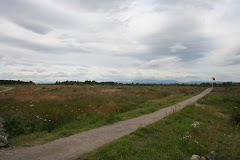



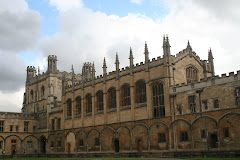

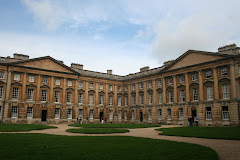
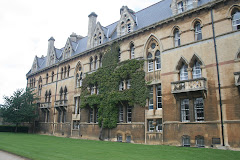



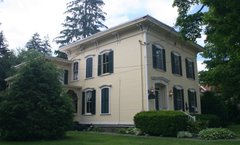

No comments:
Post a Comment